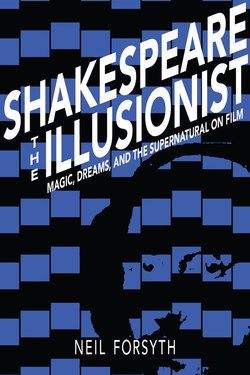Shakespeare the Illusionist

Реклама. ООО «ЛитРес», ИНН: 7719571260.
Оглавление
Neil Forsyth. Shakespeare the Illusionist
Отрывок из книги
SHAKESPEARE THE ILLUSIONIST
MAGIC, DREAMS, AND THE SUPERNATURAL ON FILM
.....
The distinction between the Lumière and Méliès tendencies is really between, on the one hand, the art that conceals its own artifice beneath the pretense of quotidian realism, the kind of illusionism that developed in the nineteenth century and that we see in wax museums and photography or, at a more interesting level, in George Eliot’s homage to Dutch realist painting in the seventeenth chapter of Adam Bede or to John Constable in the opening paragraphs of The Mill on the Floss, and on the other hand, that which celebrates its own artifice even though it may, like a conjuror (an “illusionist”), deliberately mystify the spectator about how its magic is performed. As Peter Wollen puts it, “Lumière and Méliès are not like Cain and Abel: there is no need for one to eliminate the other.”32 Indeed, because Antoine Lumière, father of the photographic brothers, rented a studio above the Robert Houdin theatre where Méliès performed, it is possible Méliès knew about the new invention before the famous viewing of the street scene in Lyon.
In addition, the transformation scenes strongly suggest that Bottom is a werewolf or something similar. He becomes a frightful creature of the greenwood, dressed in green weeds and with an enormously long snout—with which he soon begins to roger Titania, who in her drug-induced state is more than willing. A general orgy follows, and the scene is punctuated by close-ups of the hornèd Puck (Kemp himself) sensuously eating an eloquent bunch of grapes.
.....